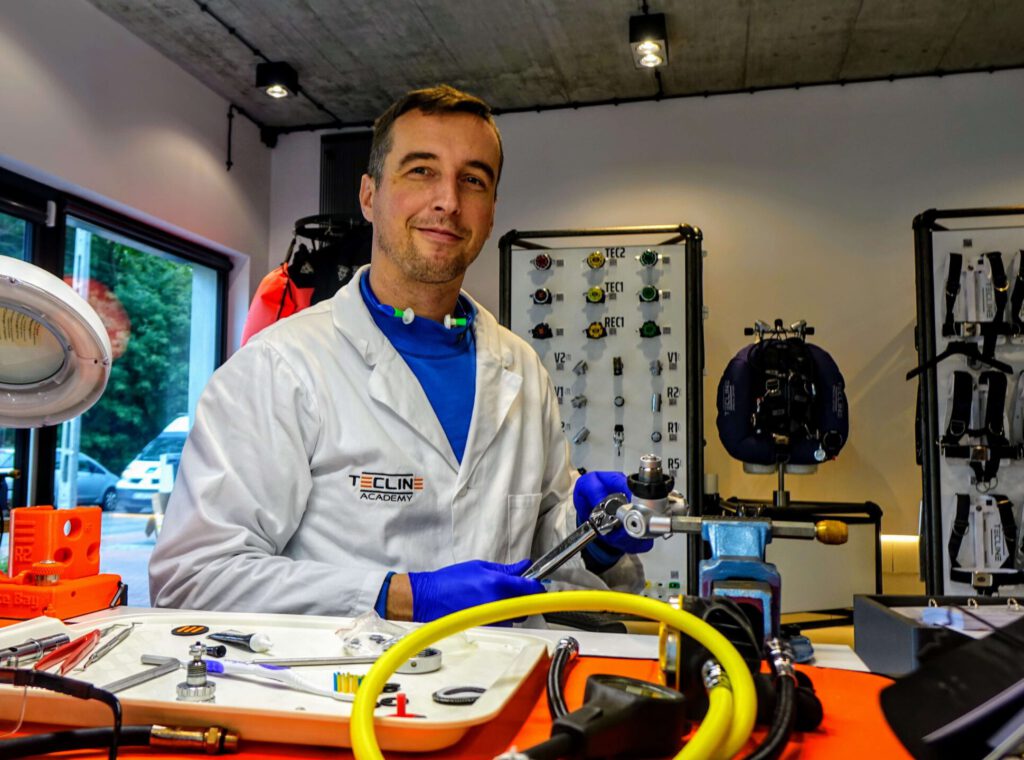How to identify why the intermediate pressure is rising?
What cleaning products can be used to clean all components while keeping the chrome coating protected?
What is the significance or definition of the EN250:2014 standard?
How to modify a regulator to ensure if complies with the most recent standards?
Tecline Service Technician Training answers these and many other questions !
In Tecline Academy we take care to train the best service specialists. Tecline “scuba doctors” diagnose and cure your diving regulators, but also advice how to properly maintain your rig for its longevity. This is why we designed our unique service technician training program!


